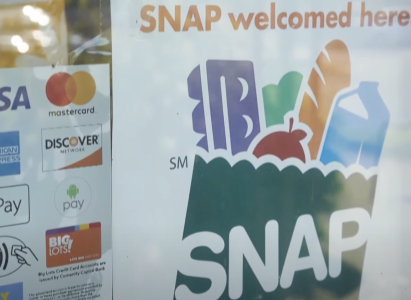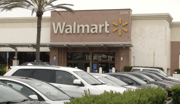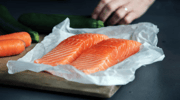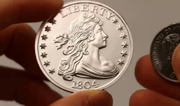Another state may soon add new grocery restrictions—what it could mean for shoppers
By
Veronica E.
- Replies 0
A growing number of states are moving to limit certain foods and drinks that can be purchased with public assistance benefits—and now another state appears ready to join them.
The changes target items often labeled as “junk food,” such as soda, candy, and other sugary snacks.
Supporters say the aim is to promote healthier eating and reduce chronic disease rates, while critics argue it unfairly limits choice and doesn’t address deeper issues like food affordability.
The debate is gaining attention across the country as lawmakers and public health officials weigh the next steps.
Here’s how the latest state’s plan might take shape.

The Supplemental Nutrition Assistance Program (SNAP), formerly known as food stamps, provides grocery funds each month to low-income individuals, families, and seniors.
In recent years, more states have sought to restrict SNAP purchases to exclude certain processed snacks and sugary beverages.
Now, Mississippi’s Governor Tate Reeves has confirmed that similar restrictions are “on my radar” as part of a larger push to “Make America Healthy Again.”
Twelve states—including Arkansas, Florida, Texas, and Utah—already have USDA-approved waivers to limit what can be bought with SNAP, with each setting its own rules.
States can’t impose restrictions without approval from the US Department of Agriculture (USDA).
Approved waivers vary: Colorado, Utah, and West Virginia have soda-only bans, while Arkansas, Texas, and others include candy and sweets in their restrictions.
If Mississippi applies for a waiver and gains approval, the changes could roll out as soon as 2026.
Proponents—including USDA Secretary Brooke Rollins and Health and Human Services Secretary Robert F. Kennedy Jr.—say the bans steer public dollars toward nutritious foods and away from products linked to obesity and diabetes.
Opponents, like Valerie Imbruce of Washington College’s Center for Environment and Society, say the policy is “paternalistic” and fails to address underlying problems such as food deserts and the high cost of fresh produce.
In many communities, soda and packaged snacks are cheaper and more accessible than healthier options.
For many SNAP recipients, especially in rural and low-income areas, grocery shopping is already a challenge due to limited store access and high prices for fresh foods.
Critics argue that restrictions can further limit choice and fail to account for the personal, cultural, and social role food plays in daily life.
Mississippi has not yet submitted a formal waiver request to the USDA, but officials say discussions are underway.
If approved, restrictions could take effect in 2026, joining a national trend that is reshaping how public food assistance is used.
Whether you view these changes as a step toward better public health or an unnecessary restriction, the debate is far from settled.
More states are considering similar measures, which could reshape grocery choices for millions.
The decisions made in the coming months may influence how assistance programs work for years to come.
Read next: Could a SNAP benefits error cost your state millions? Here’s what taxpayers need to know

Do you think adding more grocery restrictions to public assistance programs will improve health or limit choice? What changes would make healthy food more affordable and accessible in your community? Let us know in the comments below!
The changes target items often labeled as “junk food,” such as soda, candy, and other sugary snacks.
Supporters say the aim is to promote healthier eating and reduce chronic disease rates, while critics argue it unfairly limits choice and doesn’t address deeper issues like food affordability.
The debate is gaining attention across the country as lawmakers and public health officials weigh the next steps.
Here’s how the latest state’s plan might take shape.

Proposed changes could impact what’s covered under federal food assistance programs. Image Source: YouTube / 13News Now.
What’s on the chopping block?
The Supplemental Nutrition Assistance Program (SNAP), formerly known as food stamps, provides grocery funds each month to low-income individuals, families, and seniors.
In recent years, more states have sought to restrict SNAP purchases to exclude certain processed snacks and sugary beverages.
Now, Mississippi’s Governor Tate Reeves has confirmed that similar restrictions are “on my radar” as part of a larger push to “Make America Healthy Again.”
Twelve states—including Arkansas, Florida, Texas, and Utah—already have USDA-approved waivers to limit what can be bought with SNAP, with each setting its own rules.
Also read: New SNAP restrictions? Some groceries could soon be off-limits with food benefits
How would the change work?
States can’t impose restrictions without approval from the US Department of Agriculture (USDA).
Approved waivers vary: Colorado, Utah, and West Virginia have soda-only bans, while Arkansas, Texas, and others include candy and sweets in their restrictions.
If Mississippi applies for a waiver and gains approval, the changes could roll out as soon as 2026.
Also read: SNAP rules are changing in 12 states—here’s what foods could soon be off-limits
The debate: health versus choice
Proponents—including USDA Secretary Brooke Rollins and Health and Human Services Secretary Robert F. Kennedy Jr.—say the bans steer public dollars toward nutritious foods and away from products linked to obesity and diabetes.
Opponents, like Valerie Imbruce of Washington College’s Center for Environment and Society, say the policy is “paternalistic” and fails to address underlying problems such as food deserts and the high cost of fresh produce.
In many communities, soda and packaged snacks are cheaper and more accessible than healthier options.
Also read: SNAP reductions may impact seniors the most in these 15 states
Beyond the checkout line: food deserts and dignity
For many SNAP recipients, especially in rural and low-income areas, grocery shopping is already a challenge due to limited store access and high prices for fresh foods.
Critics argue that restrictions can further limit choice and fail to account for the personal, cultural, and social role food plays in daily life.
Also read: Lawsuit filed against Trump Administration over SNAP benefit changes
What’s next?
Mississippi has not yet submitted a formal waiver request to the USDA, but officials say discussions are underway.
If approved, restrictions could take effect in 2026, joining a national trend that is reshaping how public food assistance is used.
Whether you view these changes as a step toward better public health or an unnecessary restriction, the debate is far from settled.
More states are considering similar measures, which could reshape grocery choices for millions.
The decisions made in the coming months may influence how assistance programs work for years to come.
Read next: Could a SNAP benefits error cost your state millions? Here’s what taxpayers need to know
Key Takeaways
- Another state is considering joining 12 others in restricting certain “junk food” purchases with SNAP benefits.
- USDA approval is required for any changes, and current restrictions vary from soda-only bans to broader lists including candy and other snacks.
- Supporters say the bans promote better nutrition and health outcomes, while critics argue they target low-income shoppers and overlook issues like access and affordability.
- If approved, Mississippi’s changes could take effect in 2026.
Do you think adding more grocery restrictions to public assistance programs will improve health or limit choice? What changes would make healthy food more affordable and accessible in your community? Let us know in the comments below!






